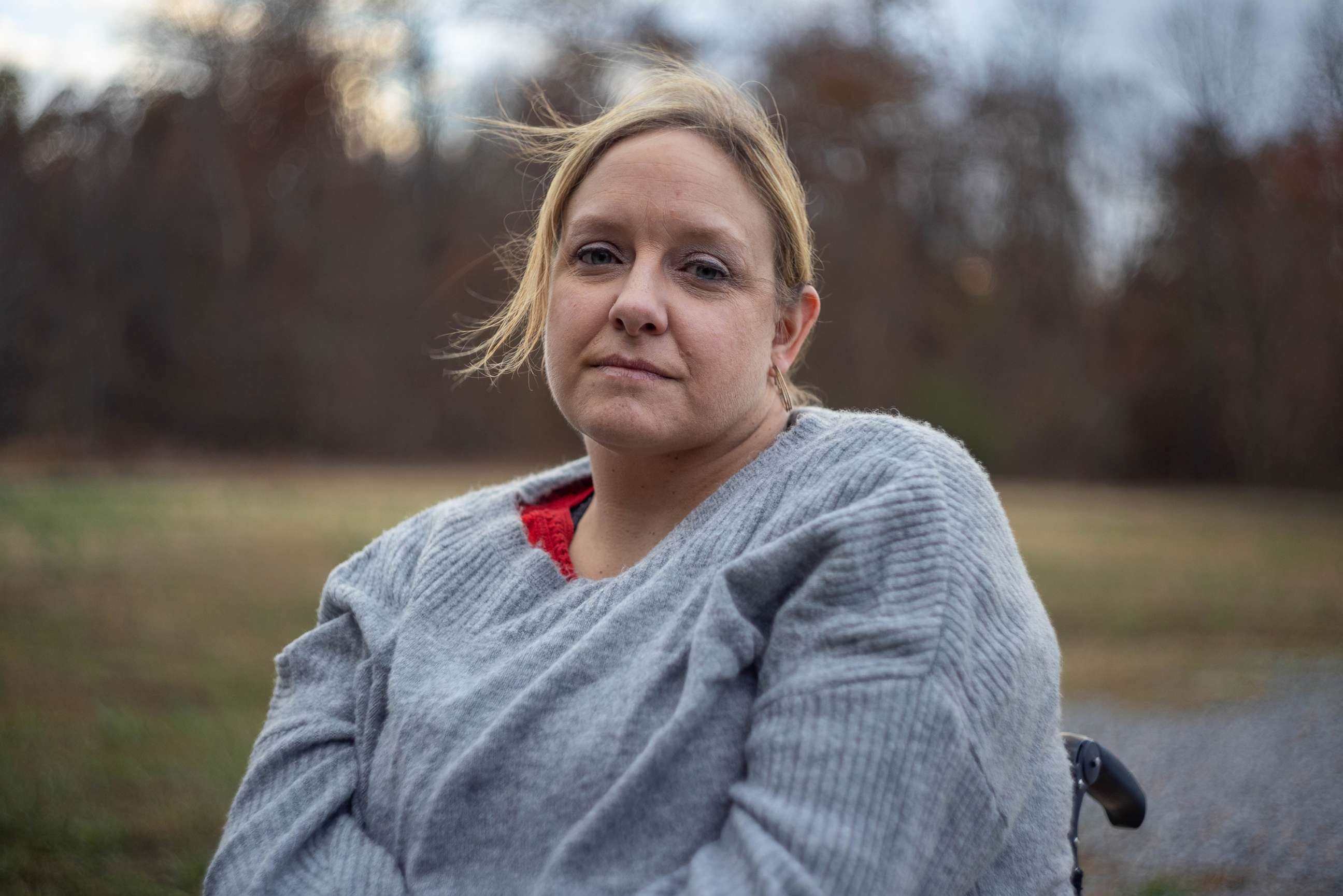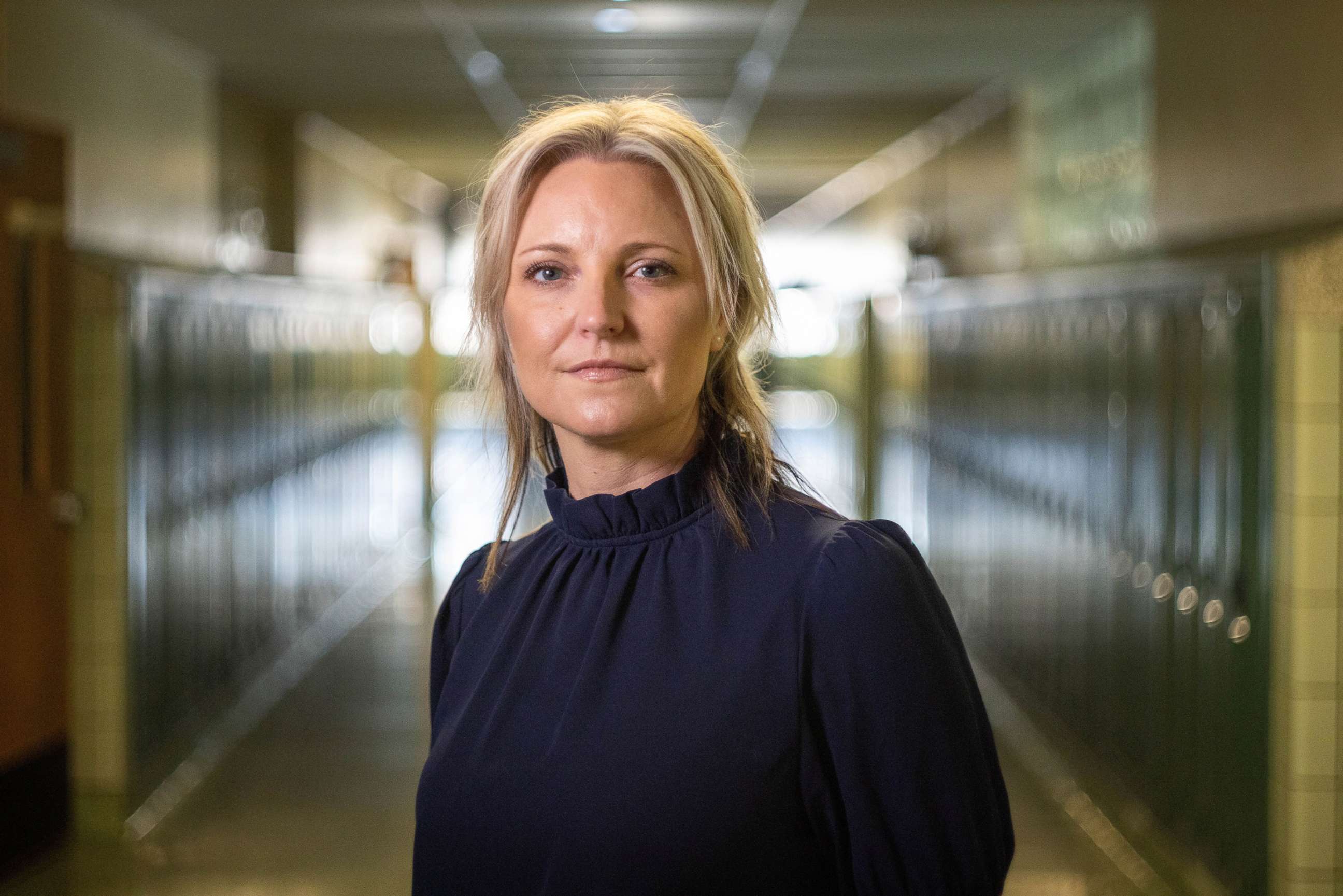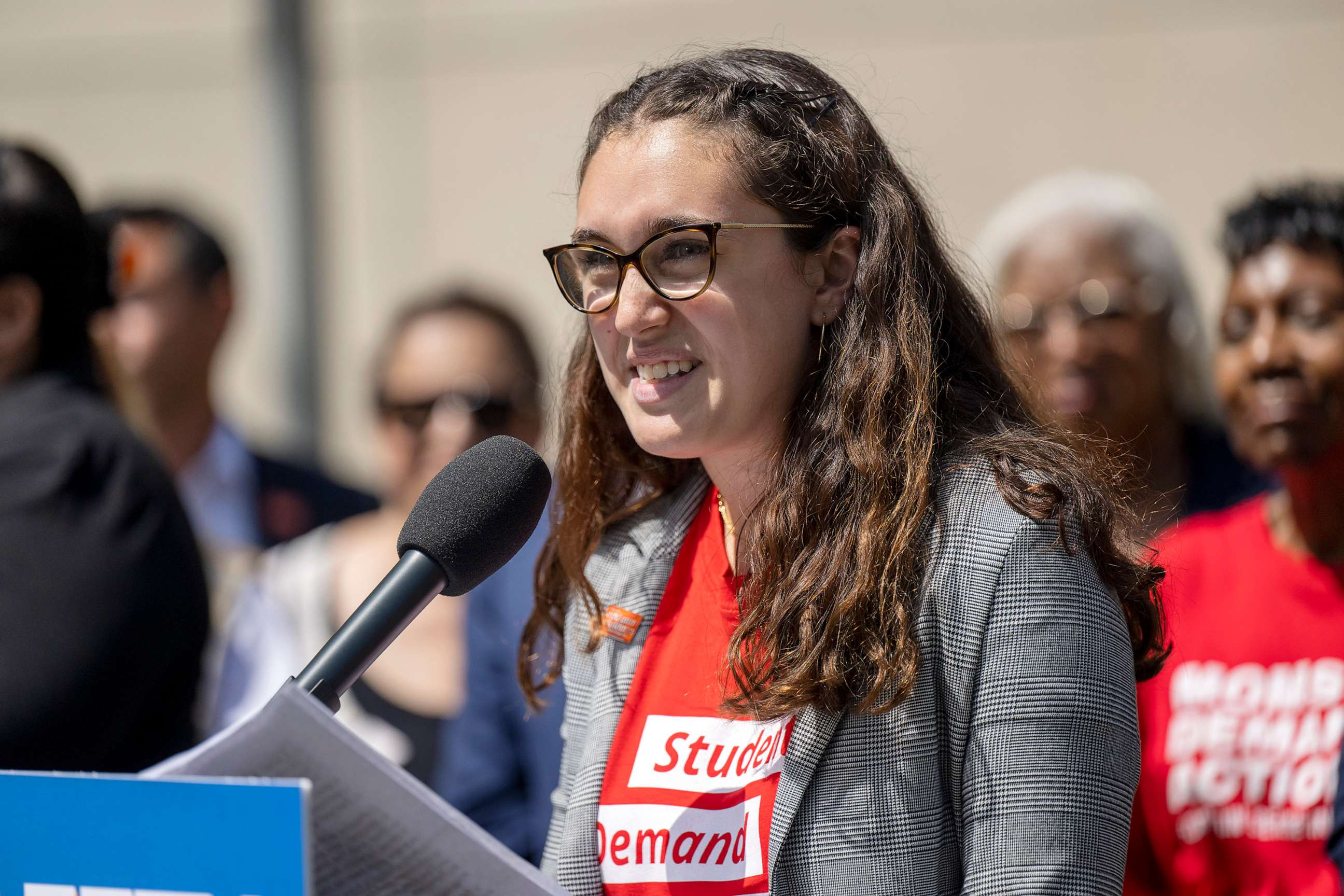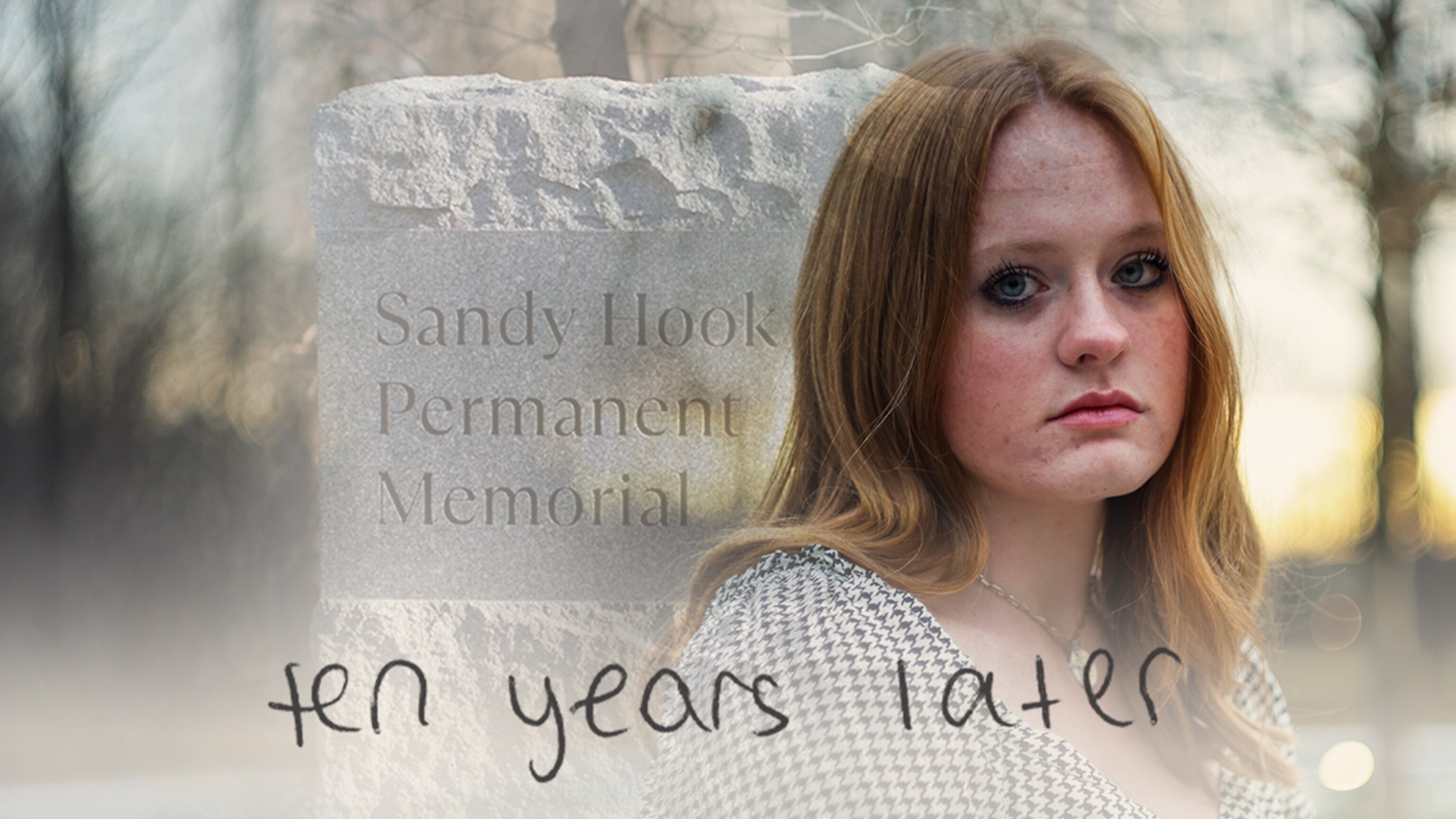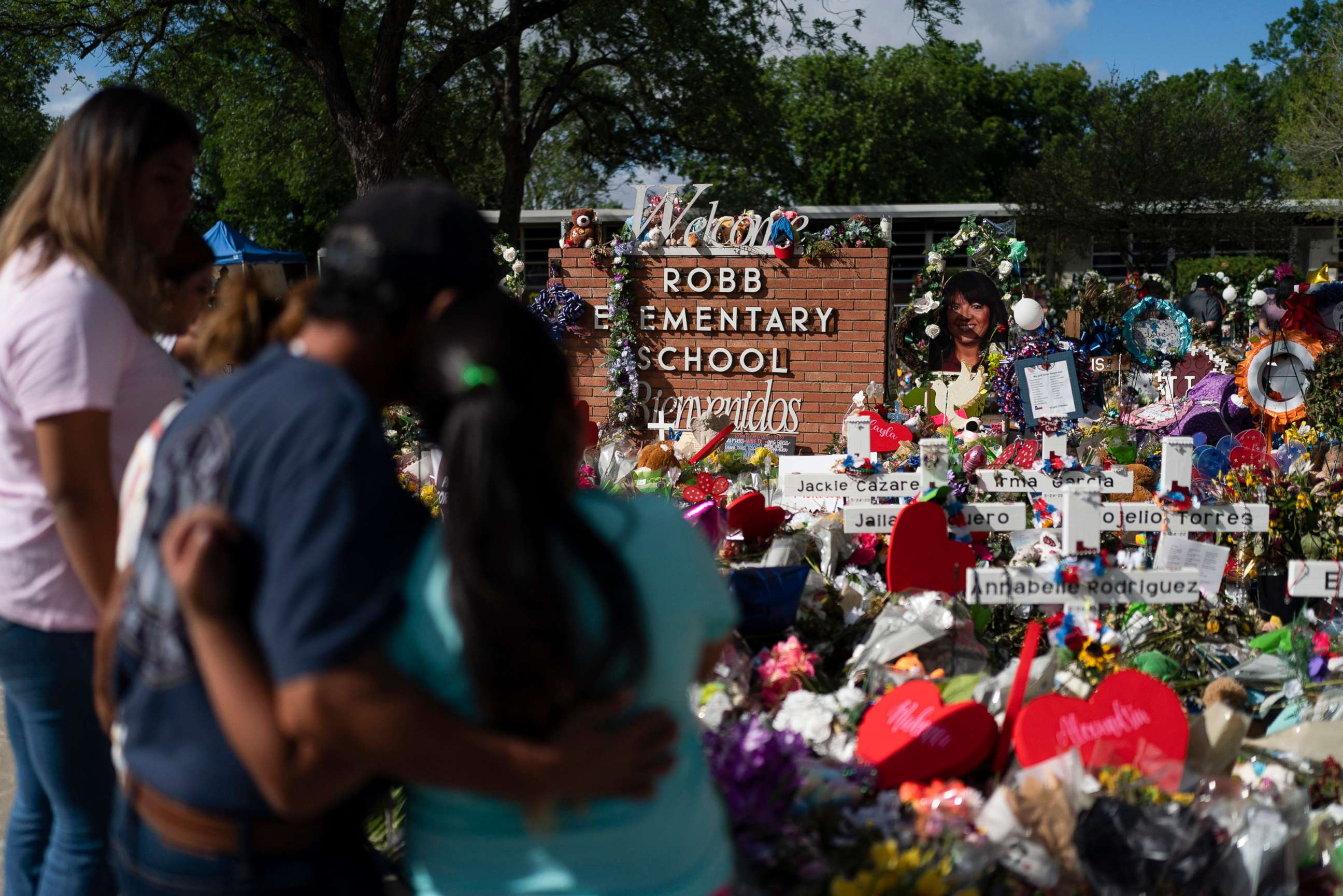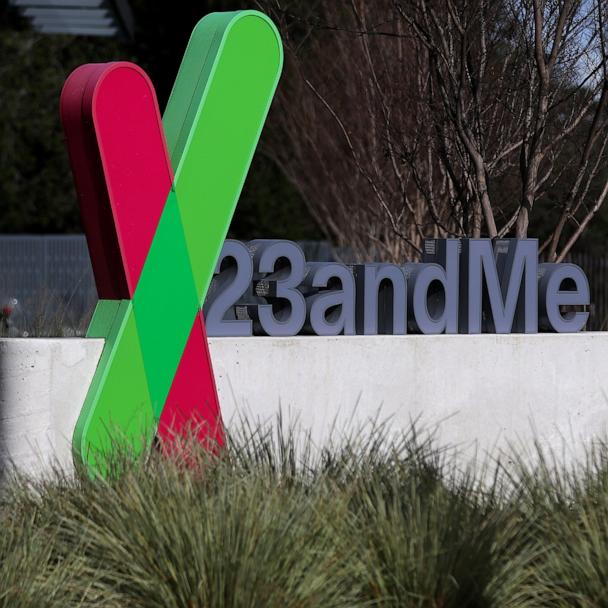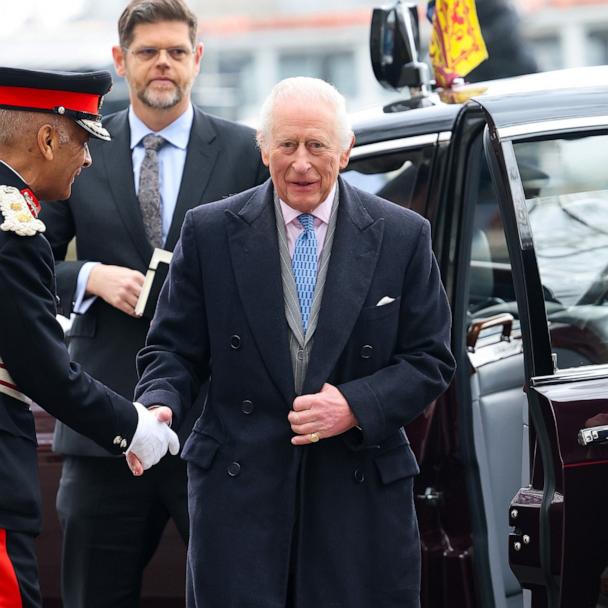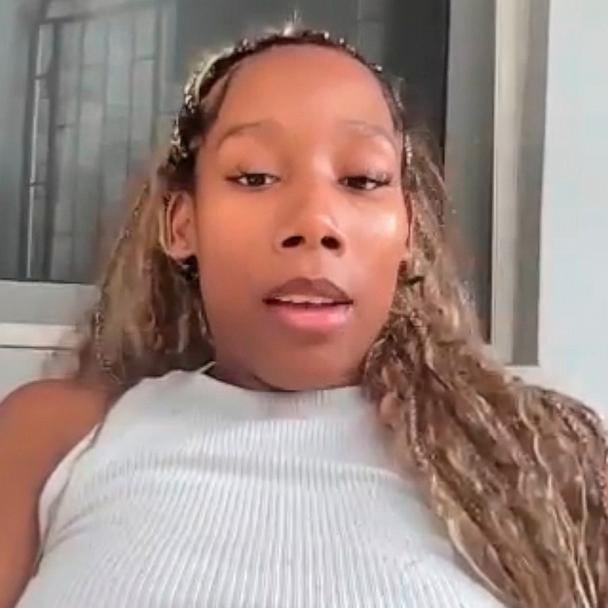April 20, 2024, marks 25 years since two seniors at Columbine High School in Colorado committed one of the most infamous school shootings in U.S. history, killing 12 students and a teacher, and injuring nearly two dozen others. Since the Columbine attack, 415 people have been killed in school shootings, and 907 have been wounded, according to an ABC News review of the Gun Violence Archive.
Here, survivors of school shootings, including Columbine, share their stories.
On Dec. 14, Jackie Hegarty of Newtown, Connecticut, knows her phone will be "flooded" with messages, as it is each year on that day, the anniversary of the Sandy Hook Elementary School mass shooting.
Hegarty, a Sandy Hook survivor, lost 20 young classmates and six educators in that shooting, which marks its somber 10th remembrance this year.
This year, Hegarty said many of the messages she receives will be from people who weren't there that day with her, but who know exactly how it feels to survive a school shooting.
The messages of support will come from the dozens of fellow school shooting survivors across the country with whom Hegarty has connected over the past decade.
"We have that unfortunate shared experience and there's some sort of wisdom that comes through that that you can't get from the average person who hasn't experienced something as traumatic," Hegarty, now 17, told " Good Morning America." "We are such a connected community."
After the Dec. 14, 2012, shooting at their elementary school, Hegarty said she and her classmates were inundated with gifts of support from across the country, including teddy bears and Christmas ornaments.
What she said she remembers receiving fewer of were letters from other school shooting survivors, in large part because, at the time, the Sandy Hook shooting was largely considered an anomaly.
In the decade that followed, the Sandy Hook shooting became just one in a long list of over 900 other school shootings. Santa Fe High School in Santa Fe, Texas. Marjory Stoneman Douglas High School in Parkland, Florida. Saugus High School in Santa Clarita, California. Robb Elementary School in Uvalde, Texas. Central Visual and Performing Arts High School in St. Louis, Missouri, to name just a few.
As that list grew, so too did the number of student survivors of school gun violence, a community that is estimated to now total thousands of people.
A survivors' club that no one wants to join
The survivors of school shootings describe themselves as being in a club that no one wants to join and one that should not exist.
More than two decades ago, in 1997, when a shooter opened fire at Heath High School in Paducah, Kentucky, Missy Jenkins Smith unknowingly became one of the first members of the club.
She was left paralyzed by the shooting, which killed three of her classmates and injured four others, including her twin sister Mandy.
Jenkins Smith, then a high school freshman, said it was the thousands of letters she received from strangers around the world that motivated her to keep going.
"Because of their encouragement and support, I didn't feel alone in it," she said, noting that she still reads the letters to this day. "That encouragement helped me to sit up and then to continue pushing myself to do more things."
In the years since, Jenkins Smith said she has sent her own letters of encouragement to survivors of school shootings. Though she didn't know it at the time, her efforts were the beginnings of a crucial support network.
Two years after the shooting at Heath High School, two students opened fire at Columbine High School, gunning down 12 of their fellow students and a teacher before killing themselves.
The April 20, 1999, shooting was, at the time, the worst school shooting in U.S. history. In addition to the large number of victims, the Columbine shooting resulted in hundreds of students unwittingly joining the survivors club.
One of those survivors, Heather Martin, said she too remembers boxes and boxes of letters of support from around the world that descended on Columbine survivors after the shooting.
She said she and her classmates turned to each other for support, as only they knew what they had been through.
"The Columbine community has always stayed close because obviously we had a very unique experience," said Martin, a senior two days shy of her 18th birthday at the time of the shooting. "We all stay in contact."
Just over a decade later, as mass shootings and school shootings became more common, Martin and Zach Cartaya, a fellow Columbine survivor, co-founded The Rebels Project, a support network for survivors of mass trauma.
"We wanted to supply people with a support we didn't have access to in 1999," said Martin. "It started with probably 150 Columbine members and now it is up to approximately 1,800 members and they represent upwards of 145 different survivor communities."
Martin said she herself is in frequent touch with more than two dozen other school shooting survivors.
As a Columbine survivor, she said she and her classmates are paving the way in many respects, showing other survivors what life is like five, 10, 15, and 20 years after a school shooting.
'It does get better, but it never goes away'
"I was speaking to someone from Sandy Hook and asked what they wanted to get out of the conversation, and they said, 'I just want to know it gets better,' " Martin recalled. "What I would like the people who maybe have not experienced an event like this to know is that it does get better, but it never goes away."
'To talk it out with other survivors is just so important'
As school shootings have continued on across generations, the survivors have adapted to connect to each other in new ways.
Where it was once letters, survivors now reach out through text messages, phone calls, emails and social media to offer support.
Five years after the deadly shooting at Marjory Stoneman Douglas High School, that took the lives of 17 students and staff members, Sari Kaufman said she is part of an ever-growing number of group chats with school shooting survivors from across the country.
Kaufman, now 20, was a sophomore at the time of the 2018 shooting.
Today, when she sees a school shooting in the news, she reaches out to survivors on social media.
"The reason why I want to reach out is because I understand how difficult it is to navigate, especially at a young age," said Kaufman, a volunteer with Students Demand Action and founder and president of MyVote Project, a voter education initiative. "Reaching out to other students and giving them my advice has also helped me heal, because when I tell other people, 'This is what you should be doing,' it reminds me what I haven't been doing, like taking care of yourself and letting yourself process it."
Kaufman and other survivors said it's different talking about the grief and fear of a school shooting with parents or counselors than it is with students who, like you, have to return to the school that was the scene of a shooting, or who now jump at the sound of a fire alarm, or who are paralyzed by fears of starting at a new school.
'When anniversaries come up, we always text each other'
"It's a very weird experience knowing that you are so similar and so different in so many different ways, like maybe you live across the country from me, and something happened to us that was the same but so different," said Mia Tretta, who was a 15-year-old freshman when she was shot by a gunman at Saugus High School in Santa Clarita, California, in 2019. "If you are a survivor, you then really understand that connection is so important and that no one else is going to relate on the same level."
Tretta, whose best friend was killed in the shooting, said her phone's contact list is filled with the cell phone numbers of fellow school shooting survivors, many of whom she met through her work with Everytown for Gun Safety, a gun control nonprofit.
"When anniversaries come up, we always text each other, or when it's the beginning of the school year, which can be kind of hard, or if it's someone's birthday," Tretta said. "We're normal friends on top of that."
For some people, it can be hard to even identify as a survivor until they meet or talk with someone from another school whose story is so strikingly similar to theirs.
Salli Garrigan, now a 40-year-old mom of two, was a 16-year-old junior when 13 people were killed at her high school, Columbine.
She said for years she hid her emotions and didn't identify as a survivor because she had not personally witnessed the carnage that occurred. It wasn't until survivors of the Marjorie Stoneman Douglas High shooting spoke out about their experiences that Garrigan said she saw herself as a school shooting survivor too.
"They were identifying right away as survivors and their stories were so eerily similar to my own experience, just 20 years later," said Garrigan. "That fear is something you only feel as a survivor."
Garrigan said she connected with fellow school shooting survivors through her activism, specifically the Everytown Survivor Network, which describes itself as a "community of survivors working together to end gun violence."
"I knew I had to speak out," said Garrigan, now a Moms Demand Action volunteer and a Senior Fellow with the Everytown Survivor Network. "To talk it out with other survivors is just so important because you just can't repress it, but also just to tell survivors that they matter and their story matters and what they went through and what they're feeling now also matters."
The next generation of survivors
The network of school shooting survivors is now so large that when 19 children and two teachers were killed in May, in the mass shooting at Robb Elementary School in Uvalde, Texas, survivors from across the country activated to support the young survivors.
Some of the survivors who reached out to help were still grieving a shooting at their own school.
Just six months earlier, on Nov. 30, 2021, four students were killed and several others were injured in a shooting at Oxford High School.
"I heard from a lot of survivors and it was really helpful, and that's why I wanted to reach out to the kids at Uvalde," said Oxford alumna Zoe Touray, 18, who connected with Uvalde survivors and their parents through text messages, FaceTime and social media.
"Survivors kind of knew exactly what to ask me and how to make me feel better," she said. "So it was very comforting."
Touray's friend and Oxford classmate Ella Klimowicz, now a college freshman, said the support she and her classmates received motivated her to reach out to survivors in Uvalde as well.
Before the start of the new school year in September, Klimowicz traveled to Uvalde and delivered a handwritten note, among other items, to over 1,000 Uvalde-area elementary school students.
"I got texts and phone calls from kids saying, 'I got the note and thank you so much,' " said Klimowicz. "That really made the whole project worth it."
For others like Hegarty, who are now years removed from their school shootings, the passage of time has given them a new perspective to pass down to what they say feels like the inevitable next group of survivors.
"Now, 10 years [after Sandy Hook], I'm talking to this girl from Uvalde and she's only a few years older than I was," Hegarty said of her communications with a Robb Elementary School survivor. "Now I'm not the one reaching out for help, I'm the one trying to give help. It's been 10 years, and it's still happening."
The experience of talking to the young survivor, she said, is like talking to her 7-year-old self.
"I know exactly what she's going through," Hegarty said. "We're connected. We're part of this community now where every day, there's another part of the country that's being affected by it."
PROJECT CREDITS:
Video:
Senior Producer & Director: Faith Bernstein
Producer: Katie Kindelan
Director of Photography: Adam Wolffbrandt
Additional Cameras: Faith Bernstein & Chris Cirillo
Editors: Faith Bernstein & Chris Cirillo
Bookers: Mark Guarino, Ismael Estrada, Vera Drymon, Tommy Foster, Faith Bernstein & Katie Kindelan
Executive Producers : Asher May-Corsini & Lauren Sher
Text:
Senior Reporter: Katie Kindelan
Editor: Melanie Schmitz
Photo/Visuals:
Photographers: Adam Wolffbrandt, Meredith Longo, Jeff Swartz & Brandon Thibodeaux
Photo Editors: Phaedra Singelis & Gary Hershorn
Graphics: Alex Gilbeaux & Don Pearsall
Visual Content Director, Digital Content: Andrew VanWickler
Product Manager: Matthew Roth
Project Management:
Managing Editor: Lauren Sher
Deputy Managing Editor - Video: Asher May-Corsini
Vice President Digital: Lulu Chiang








